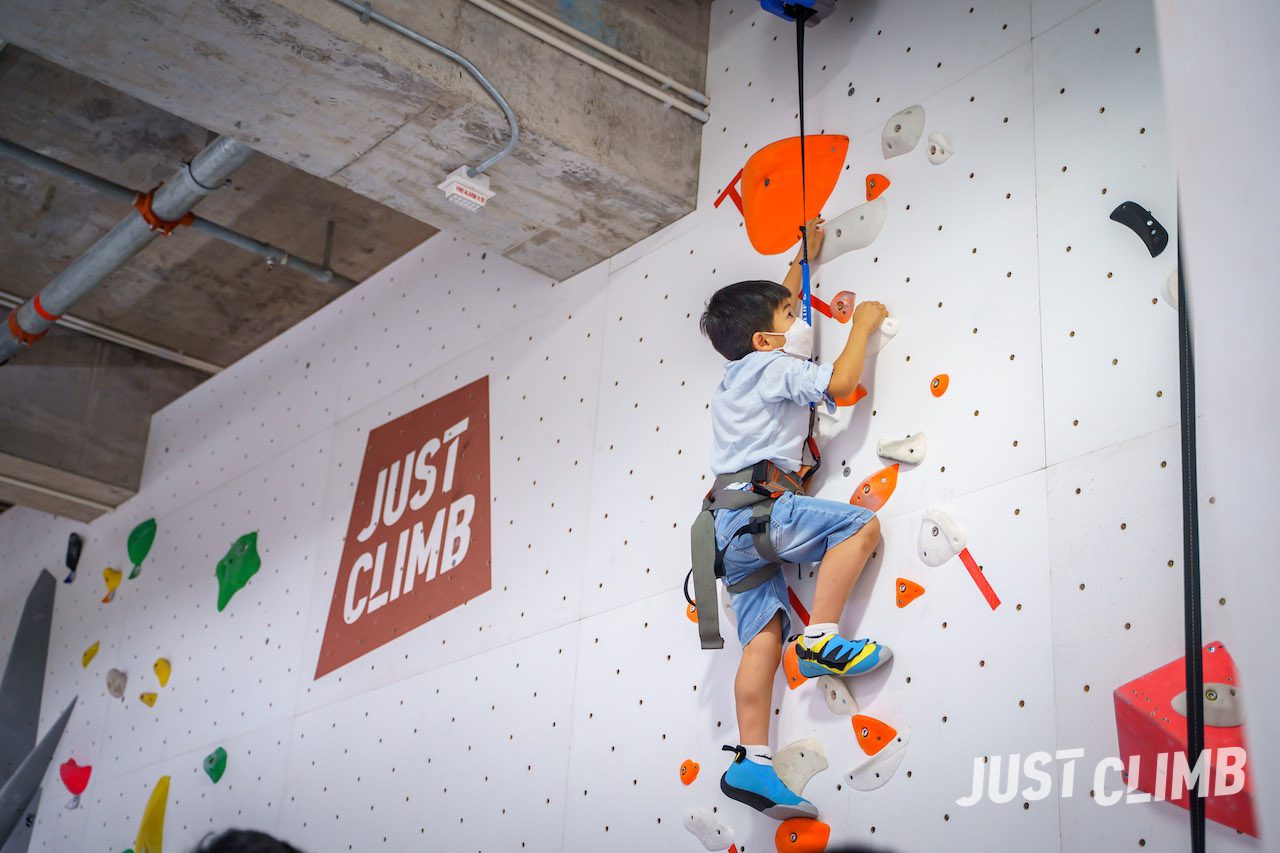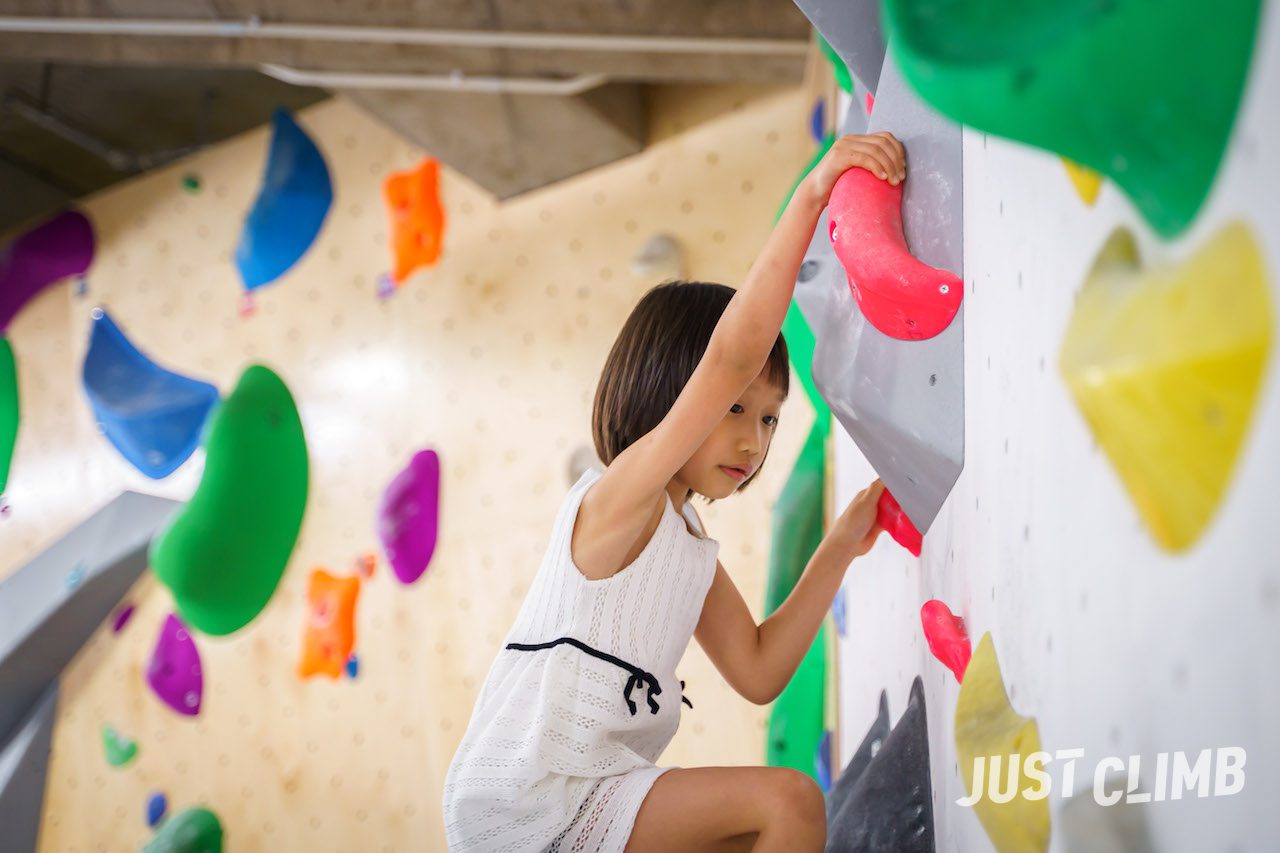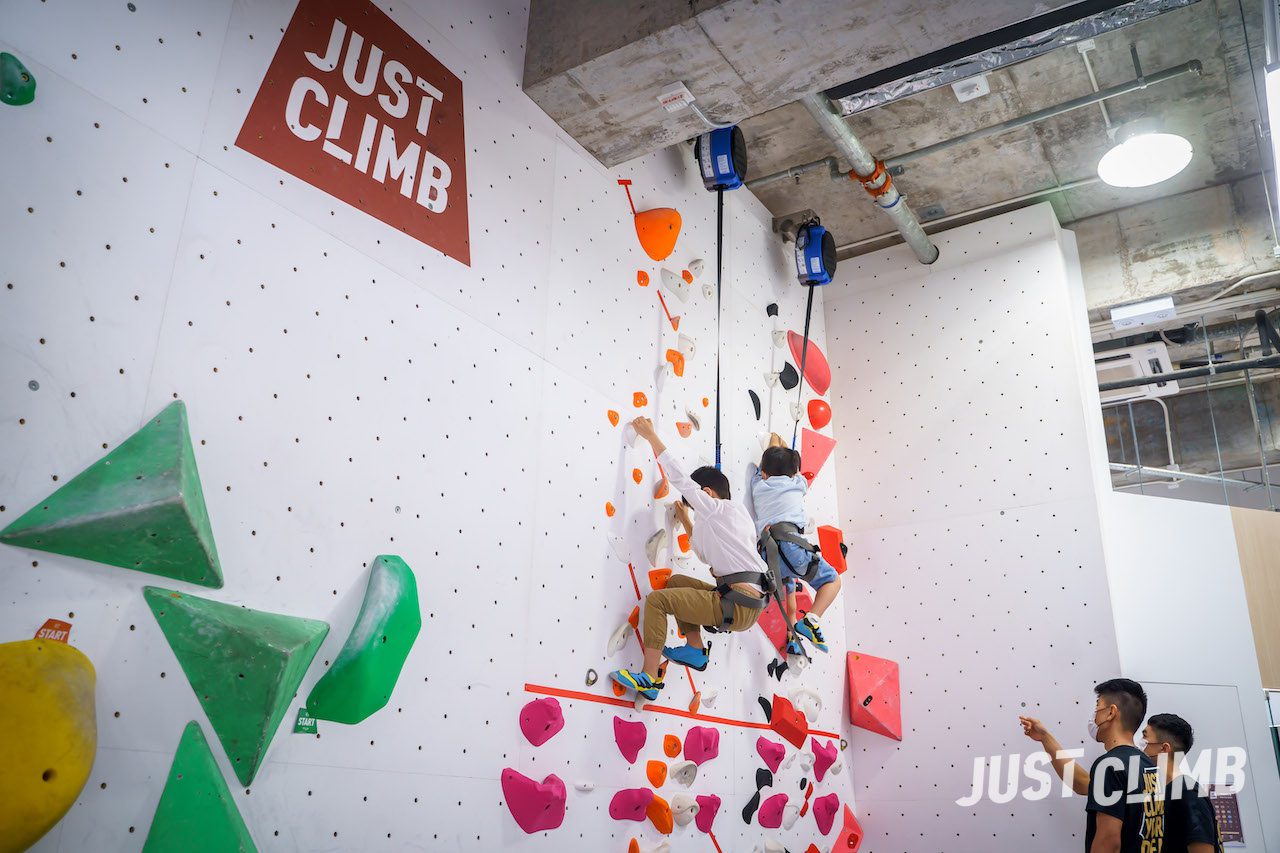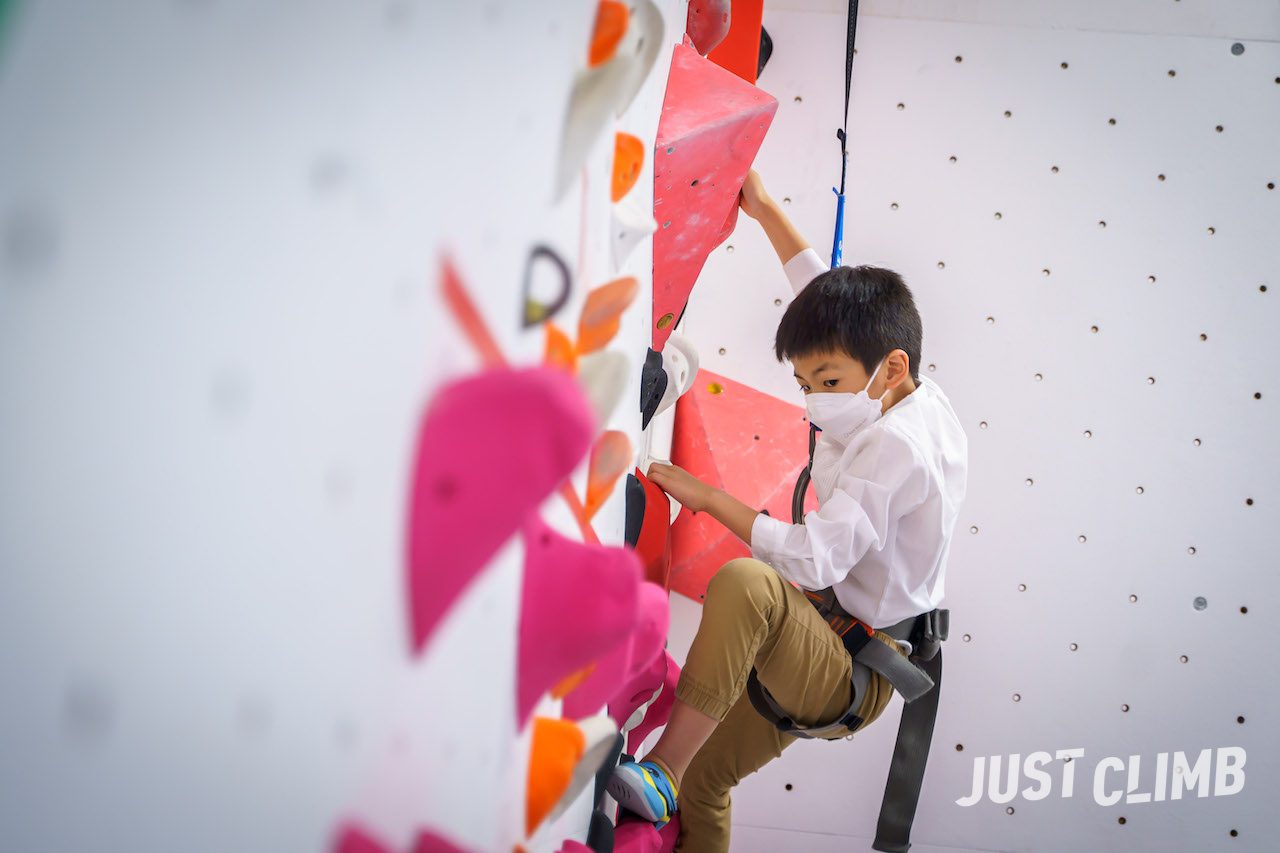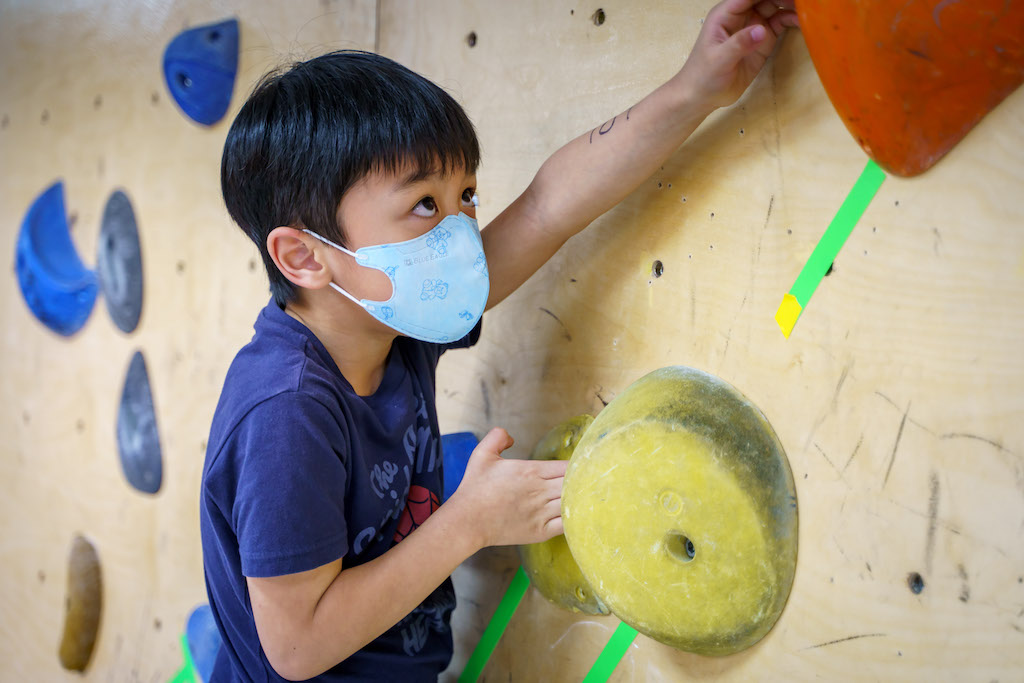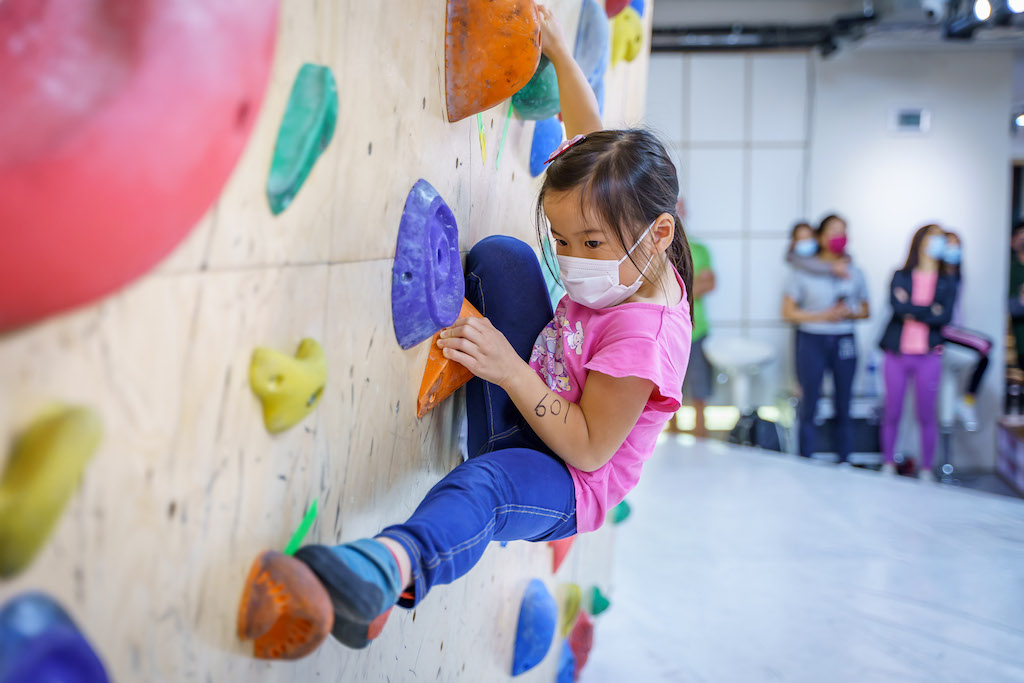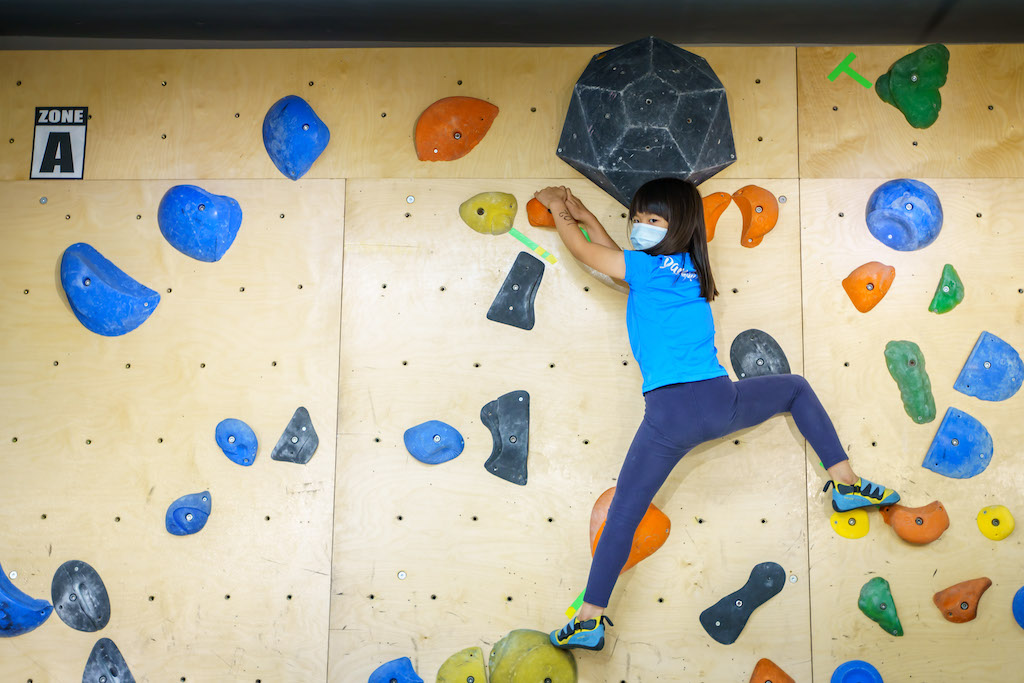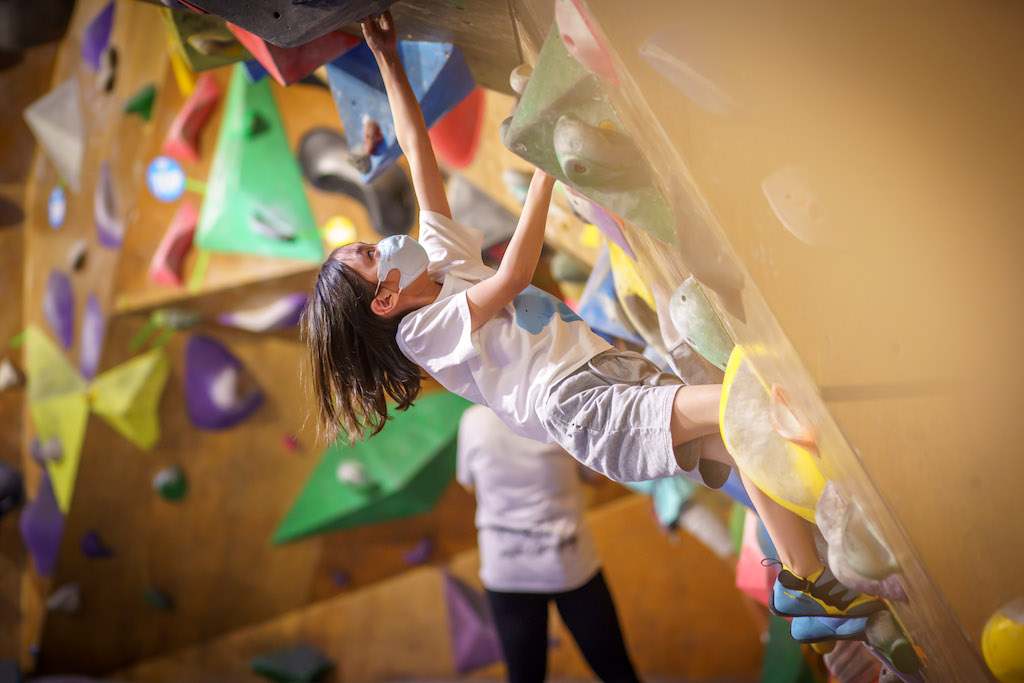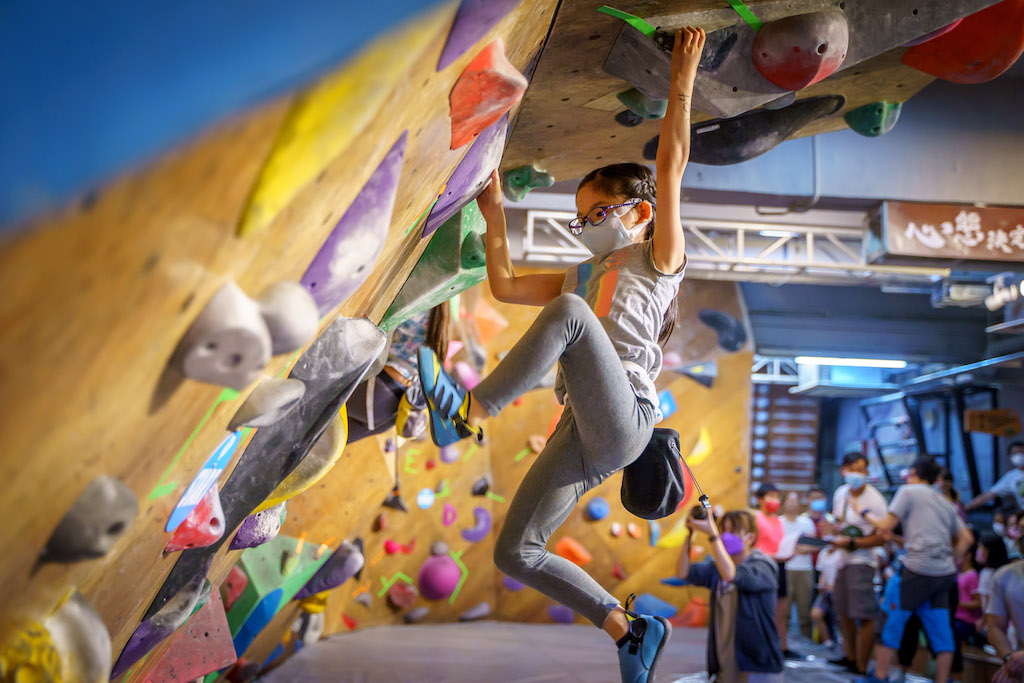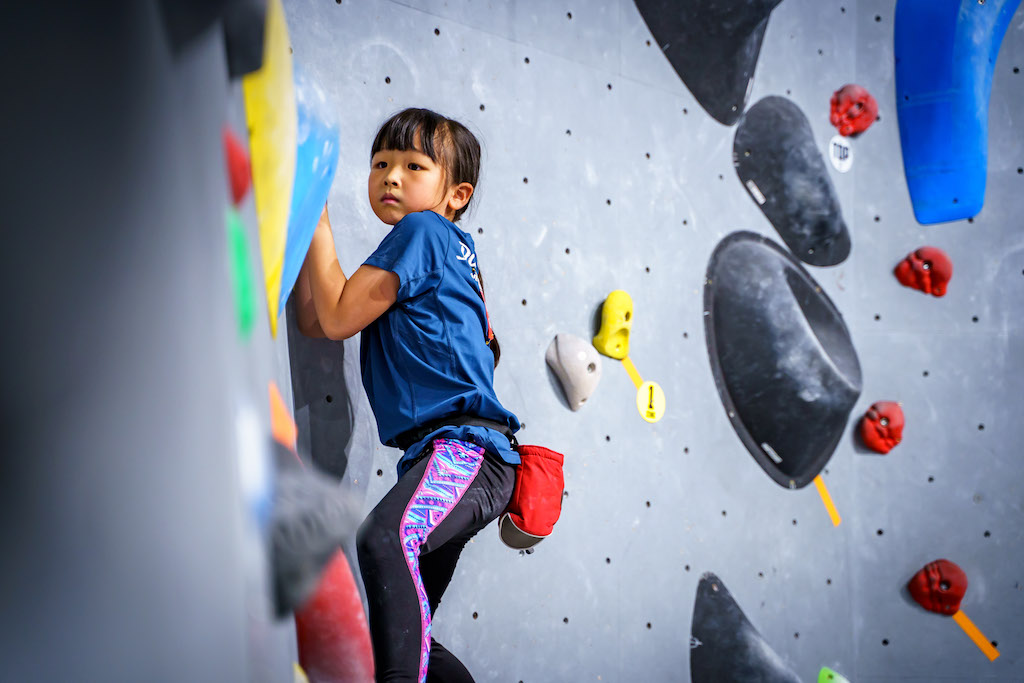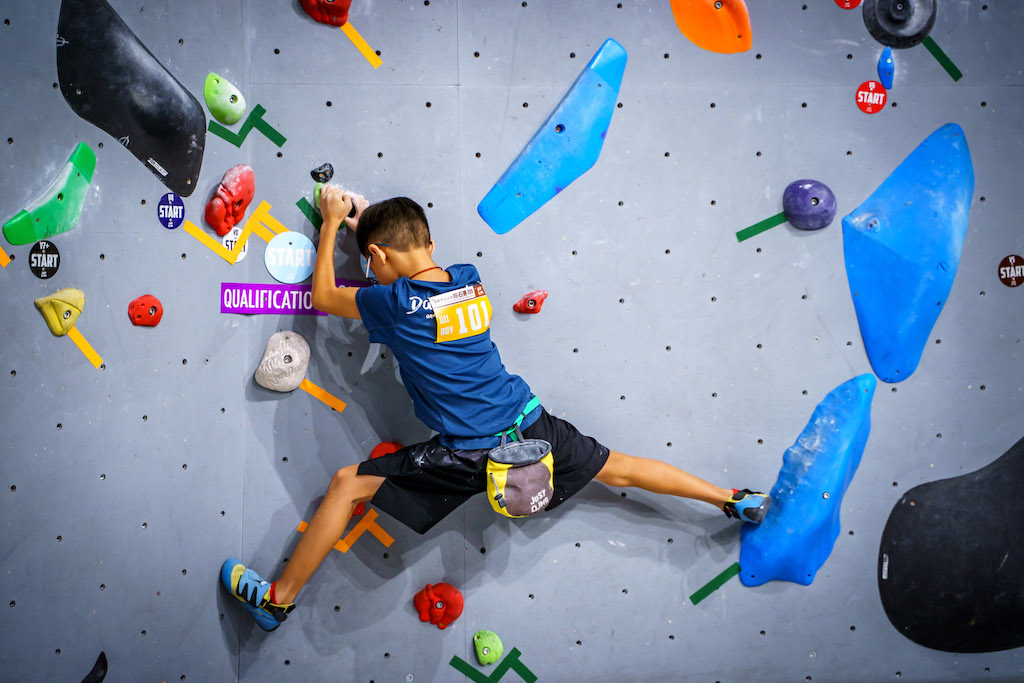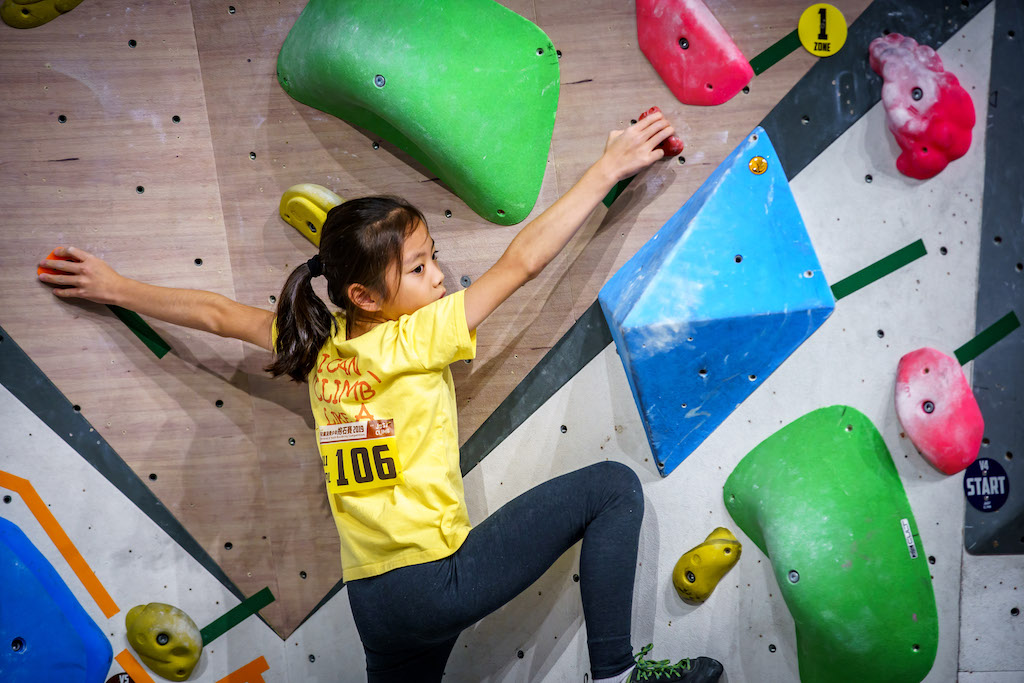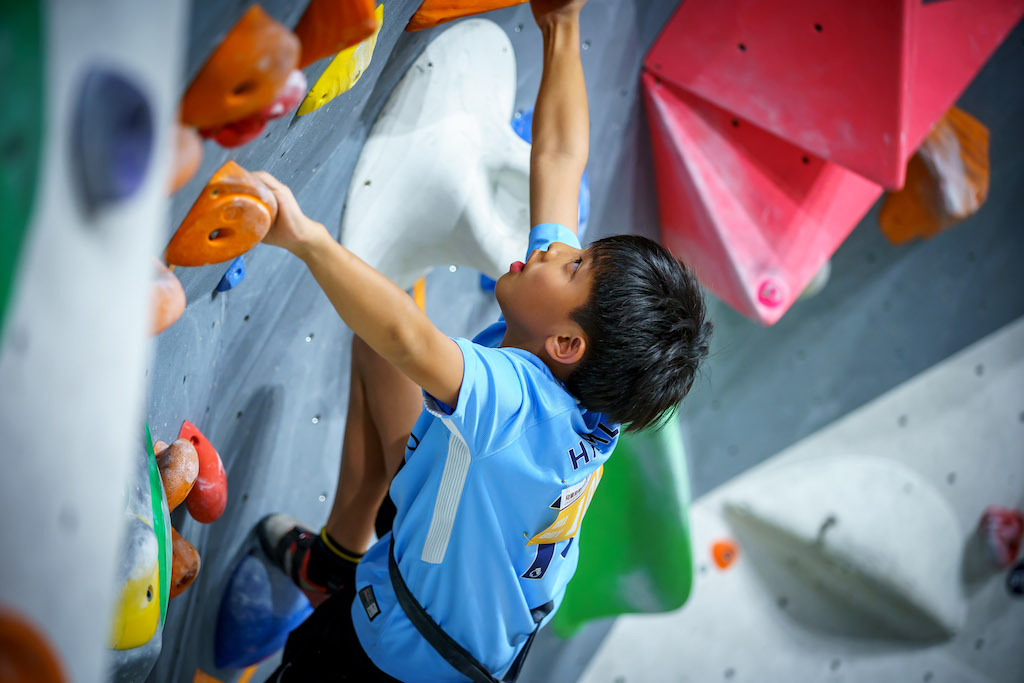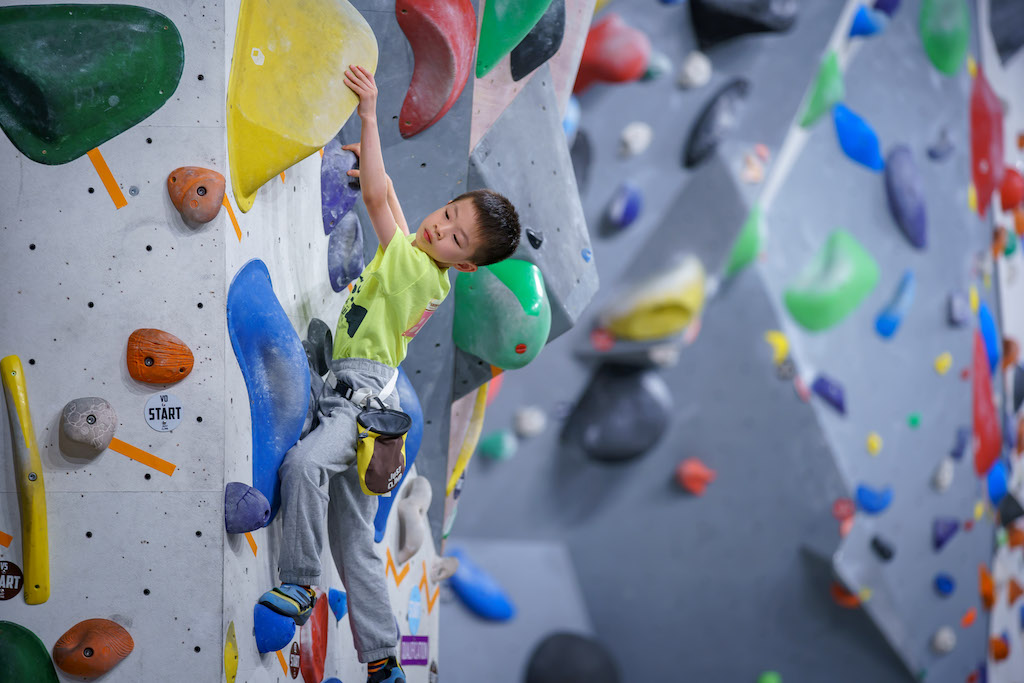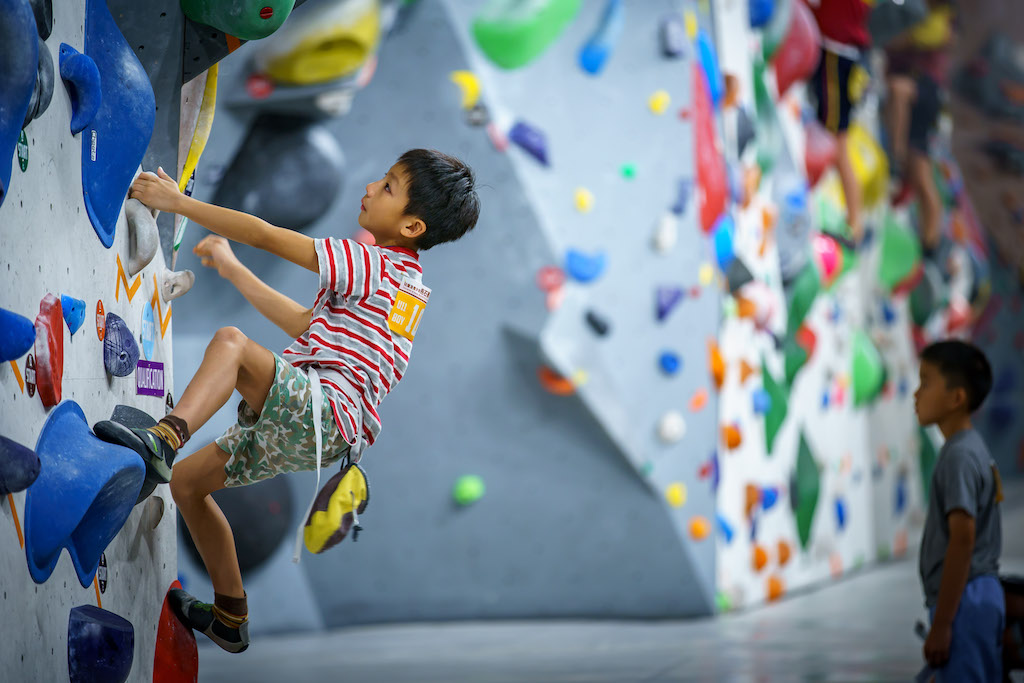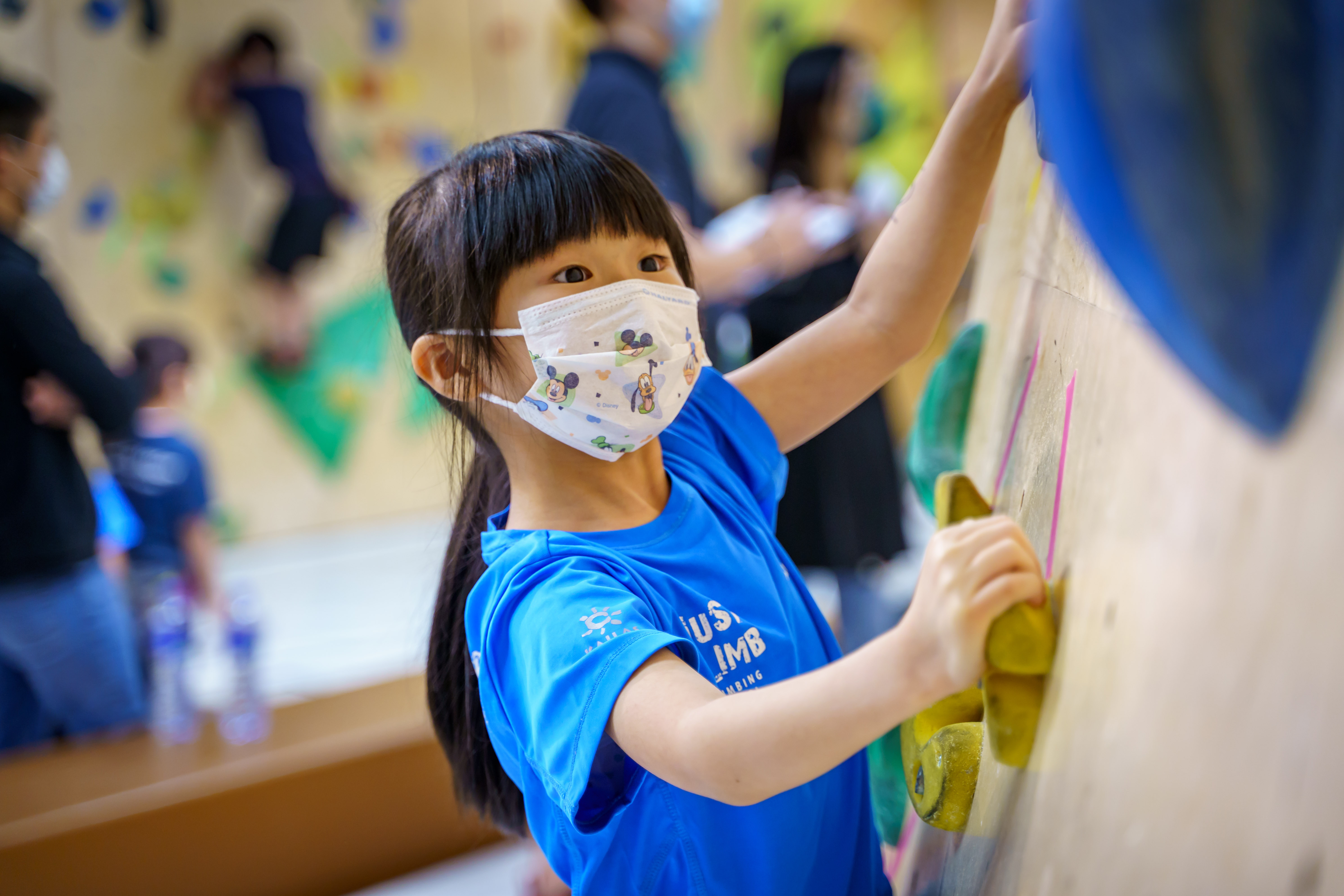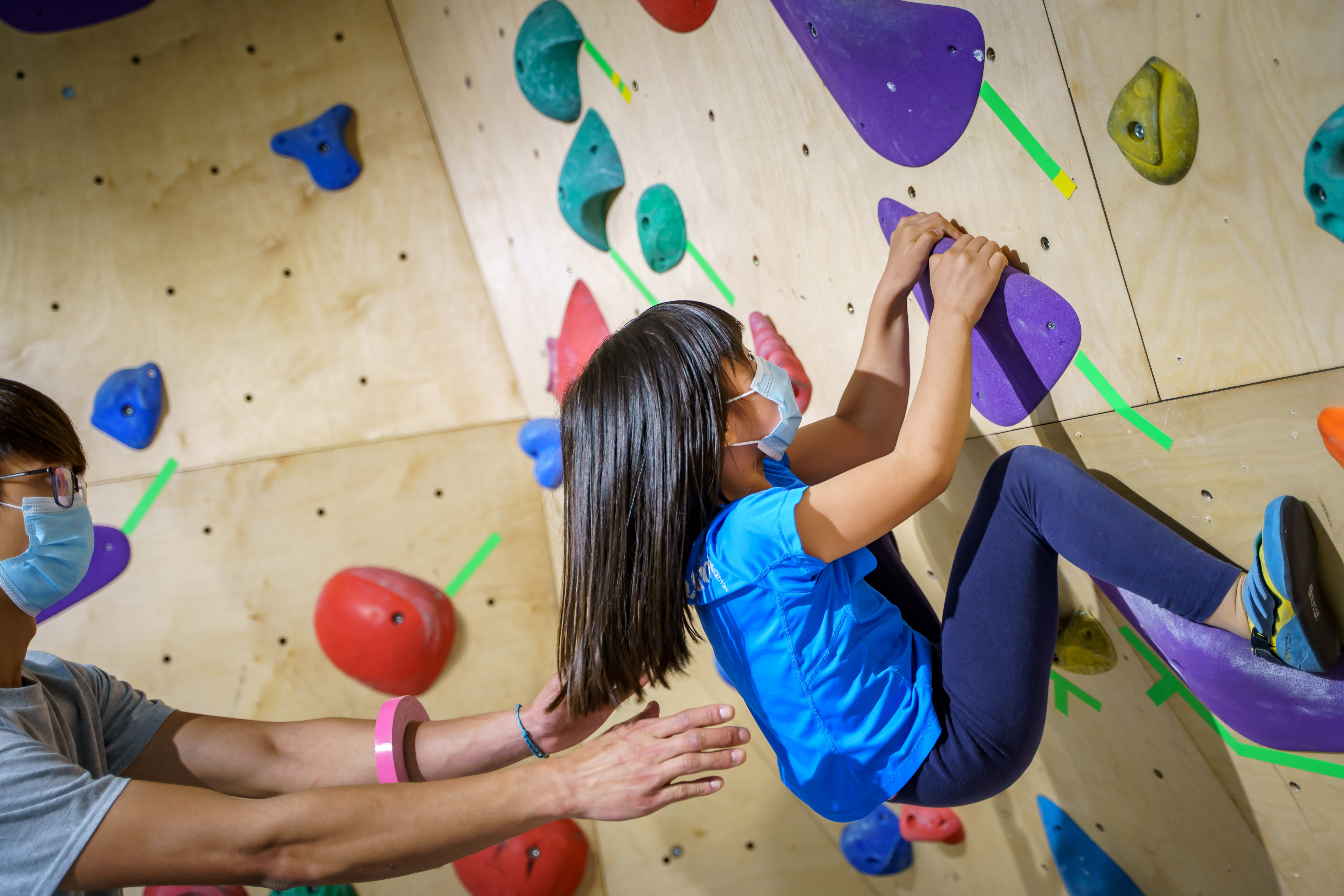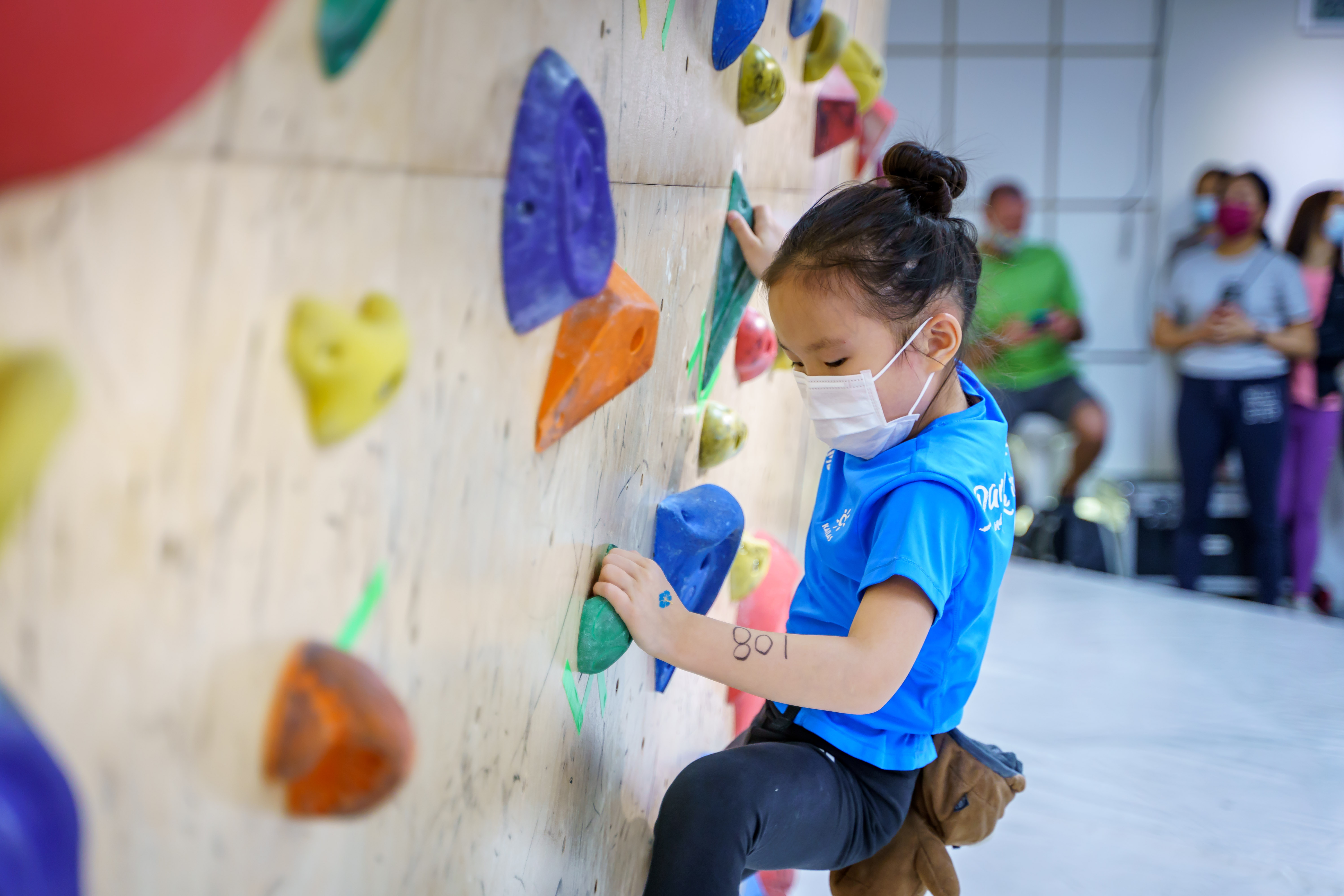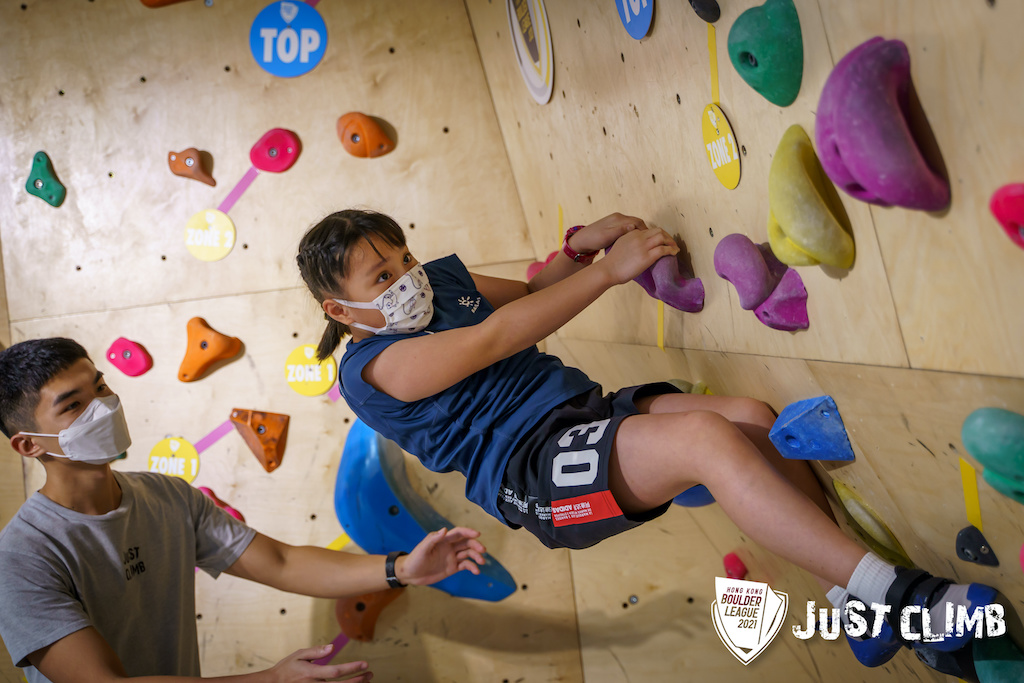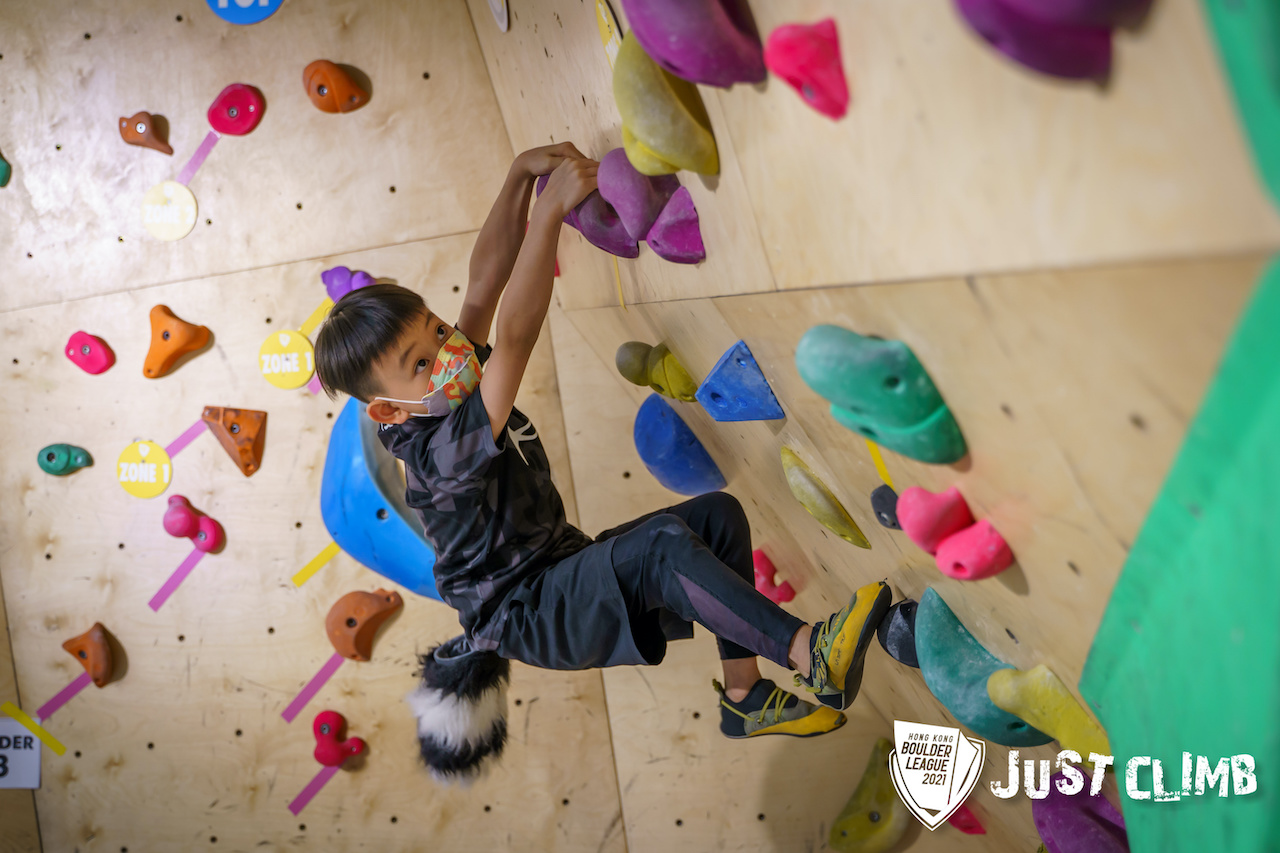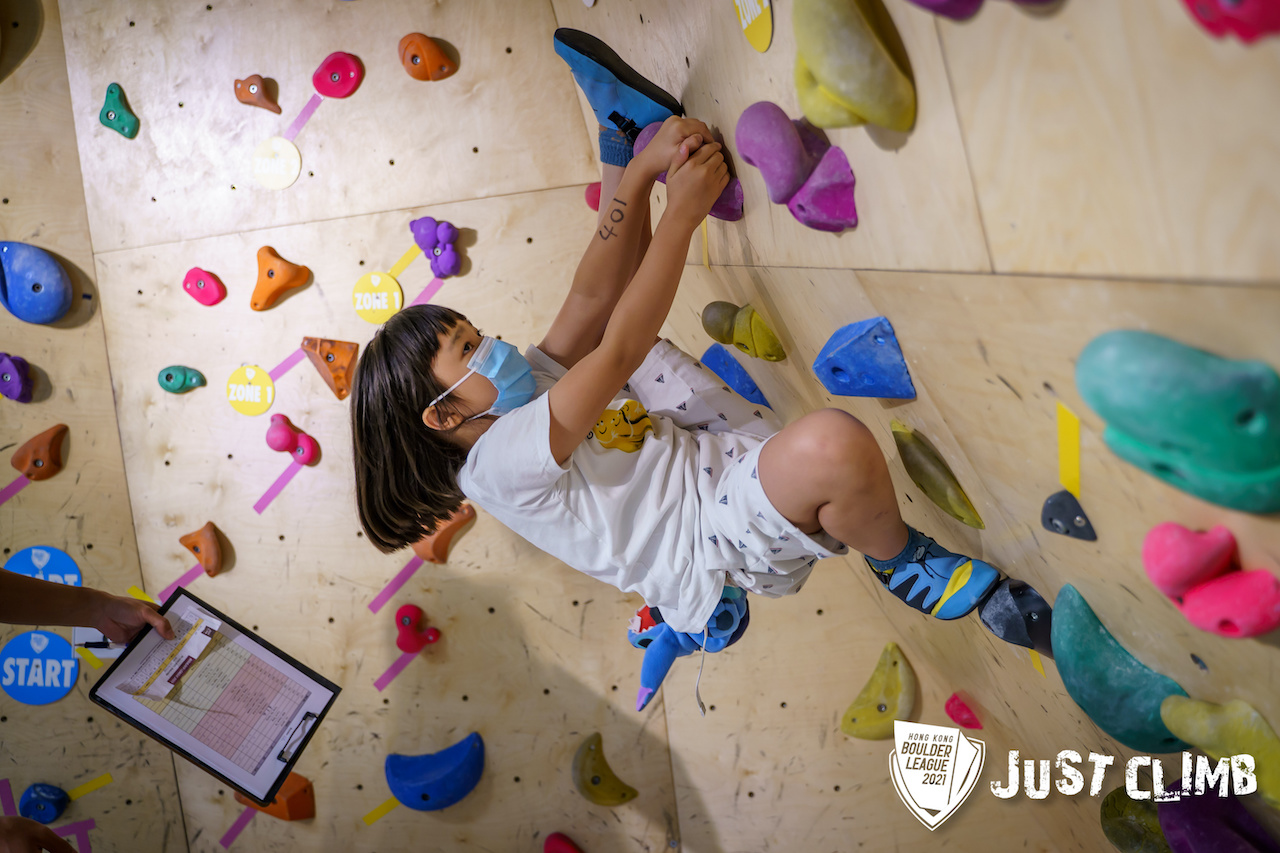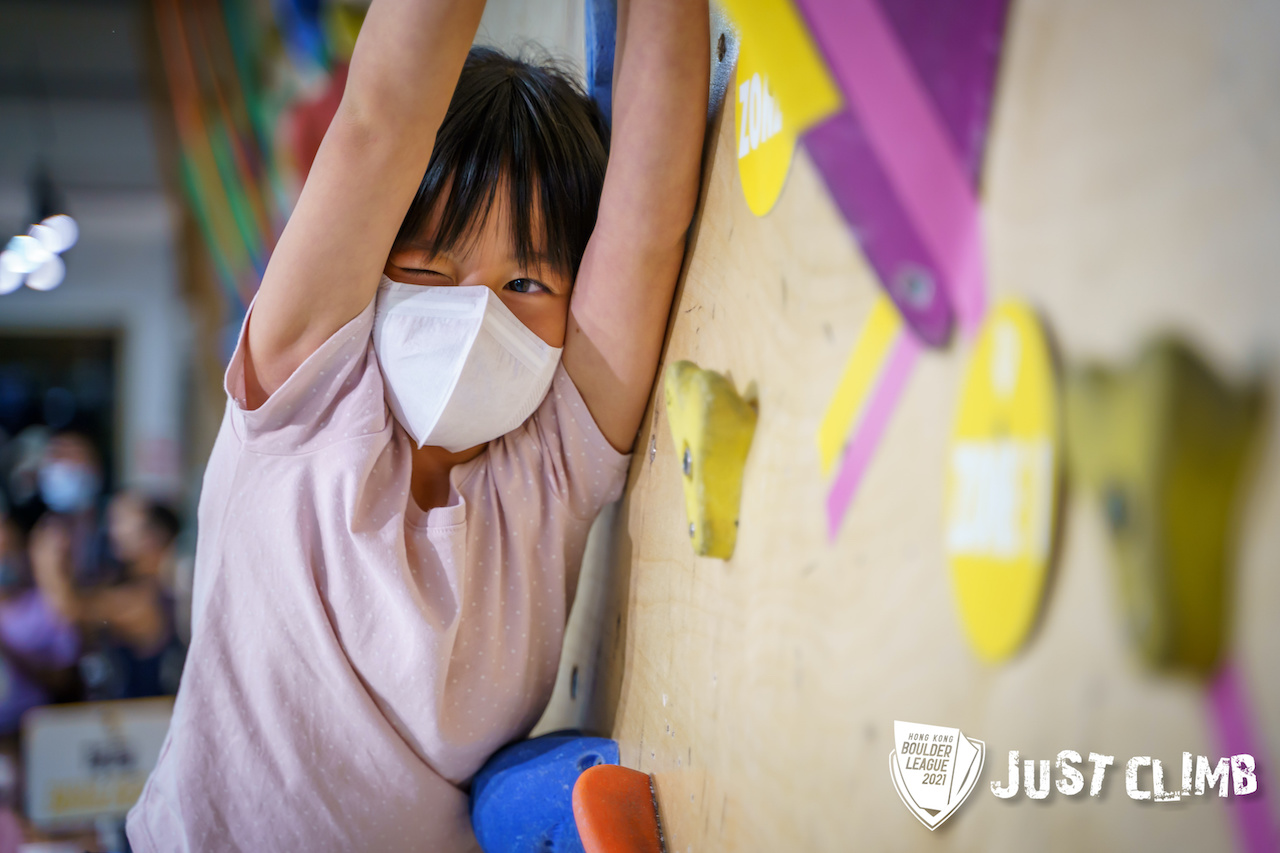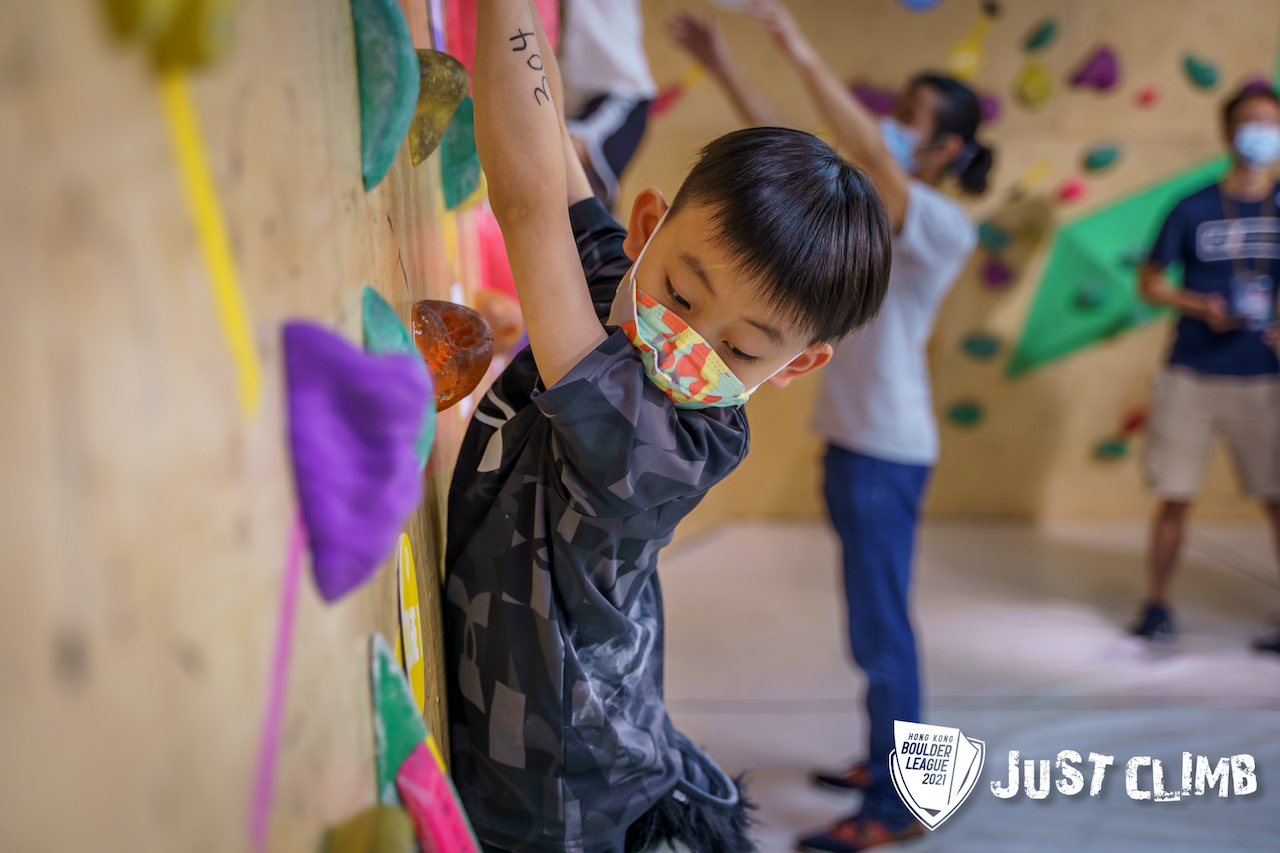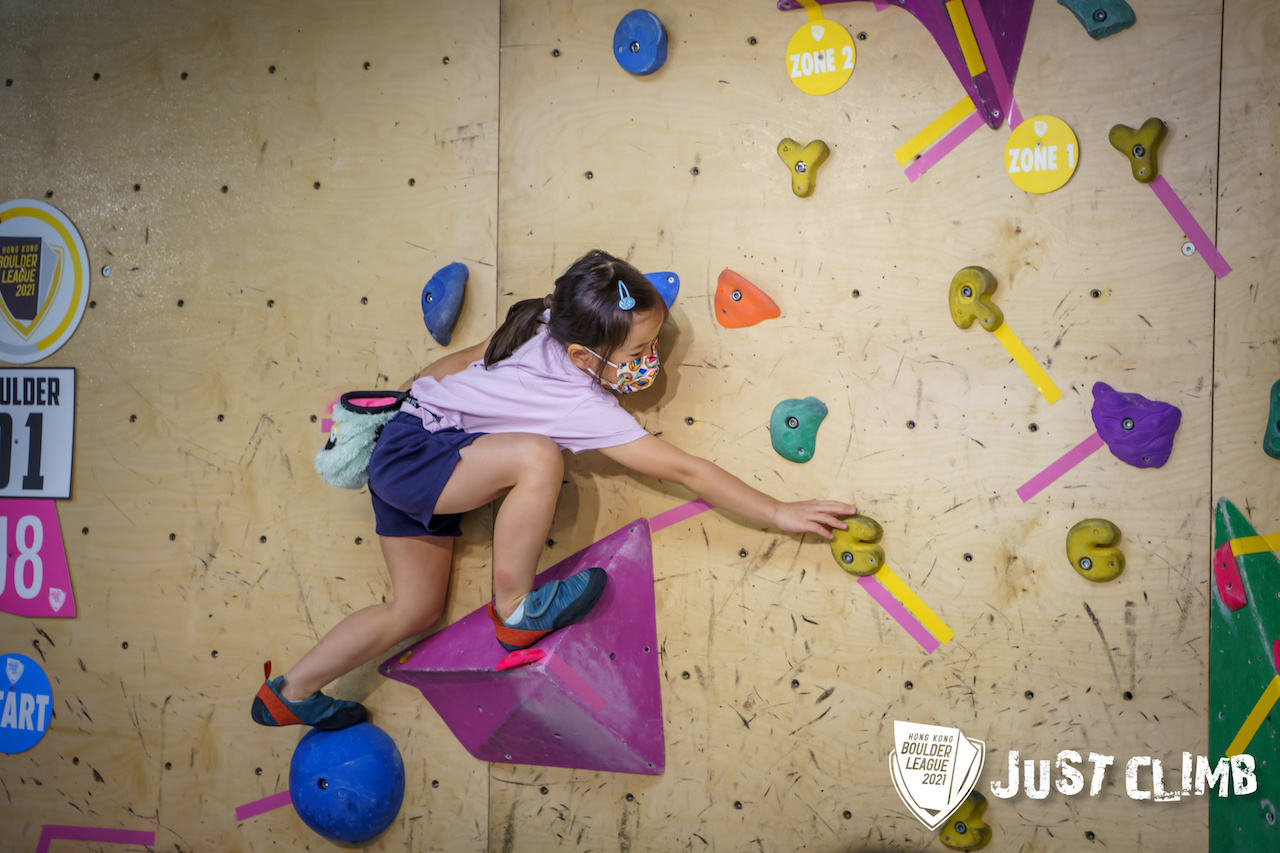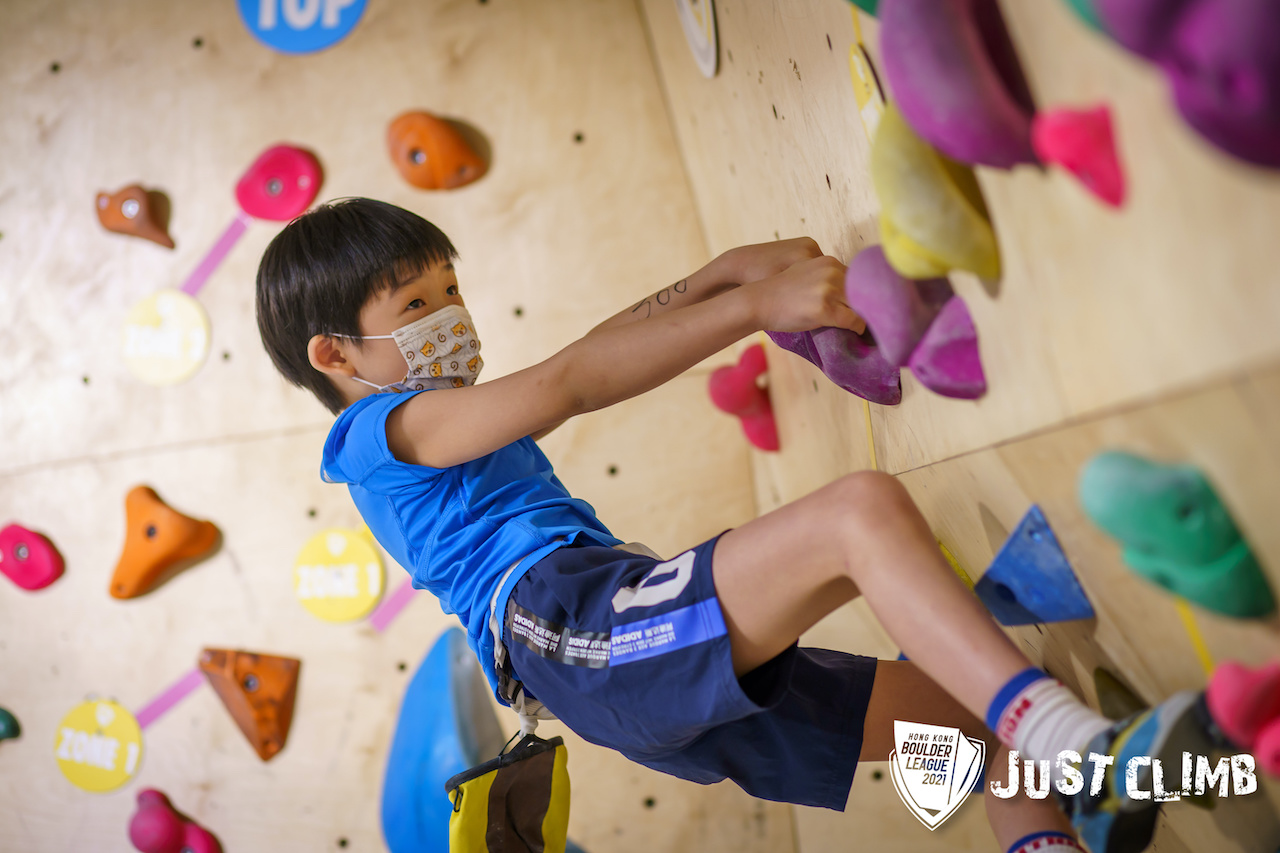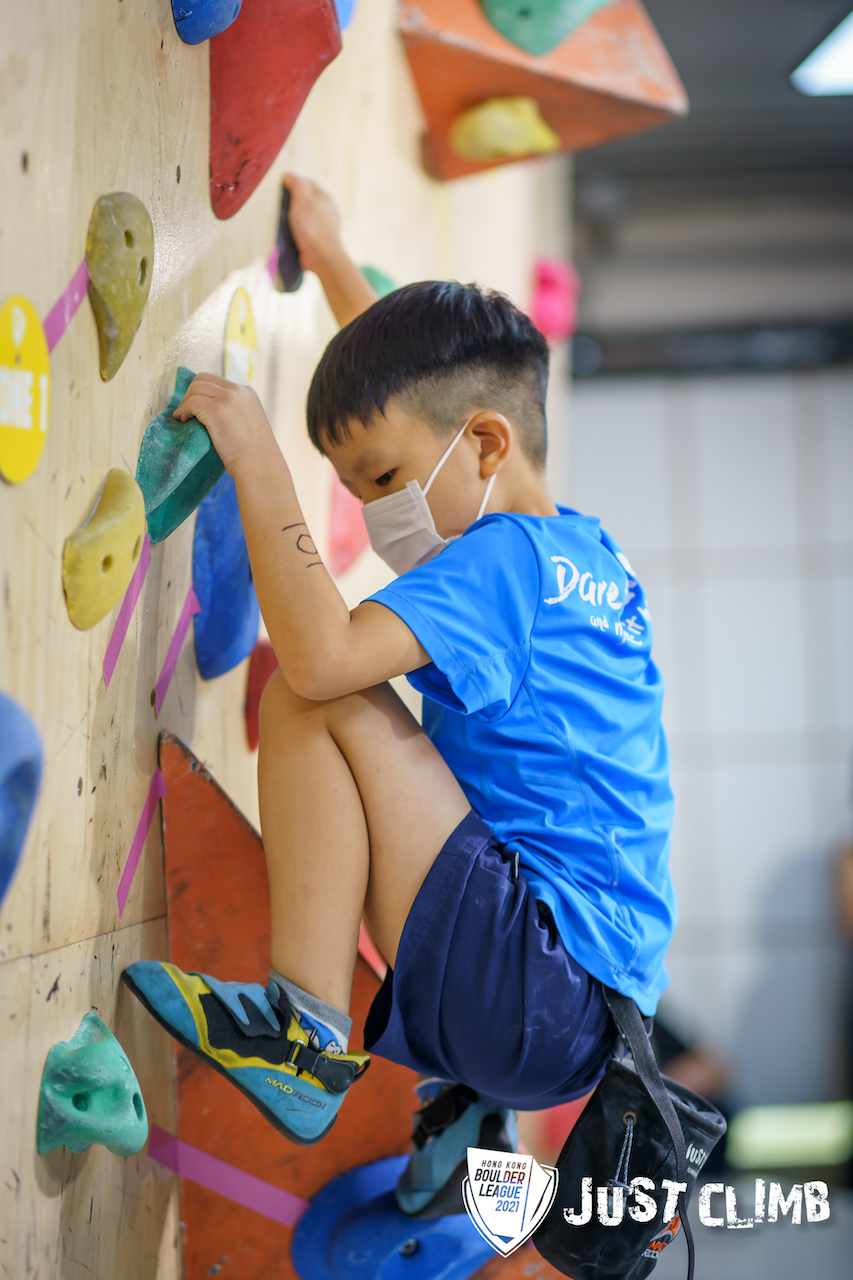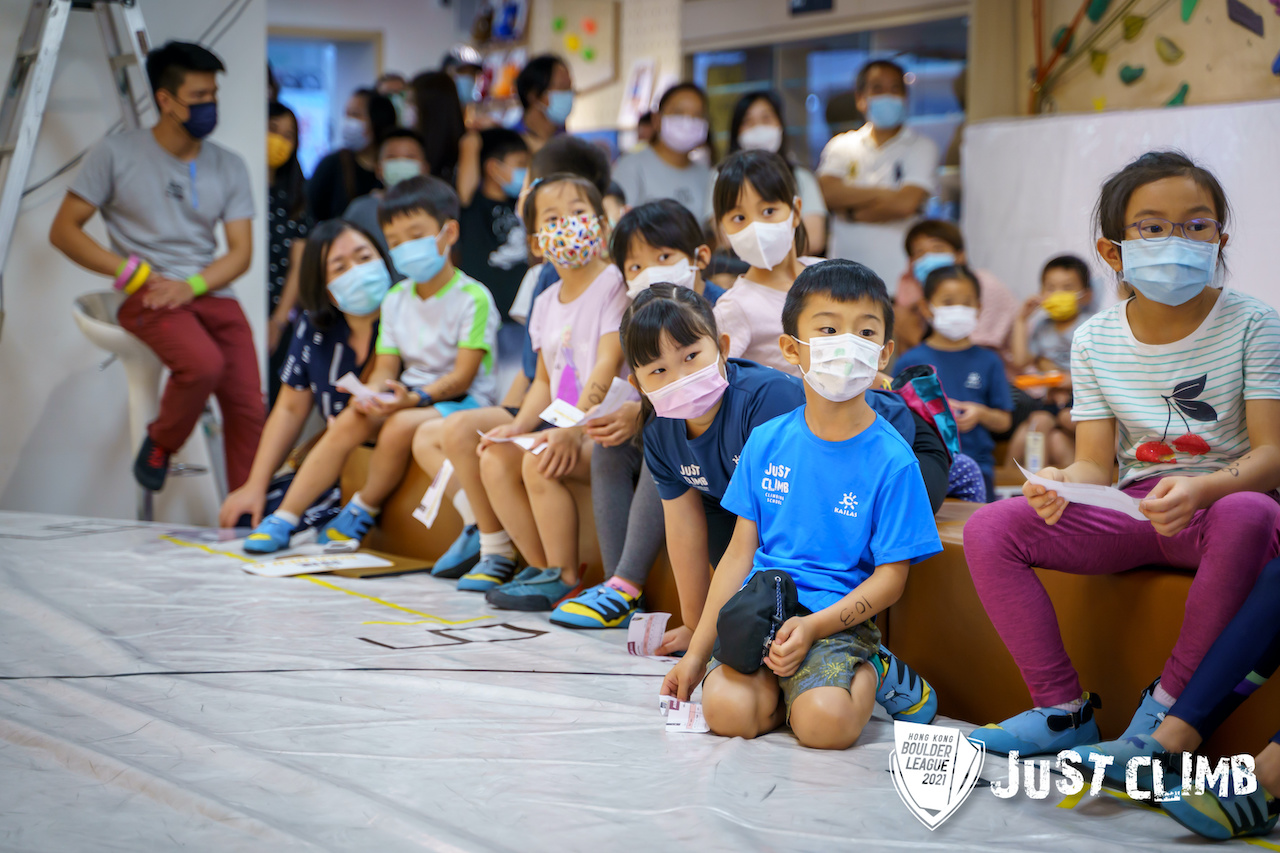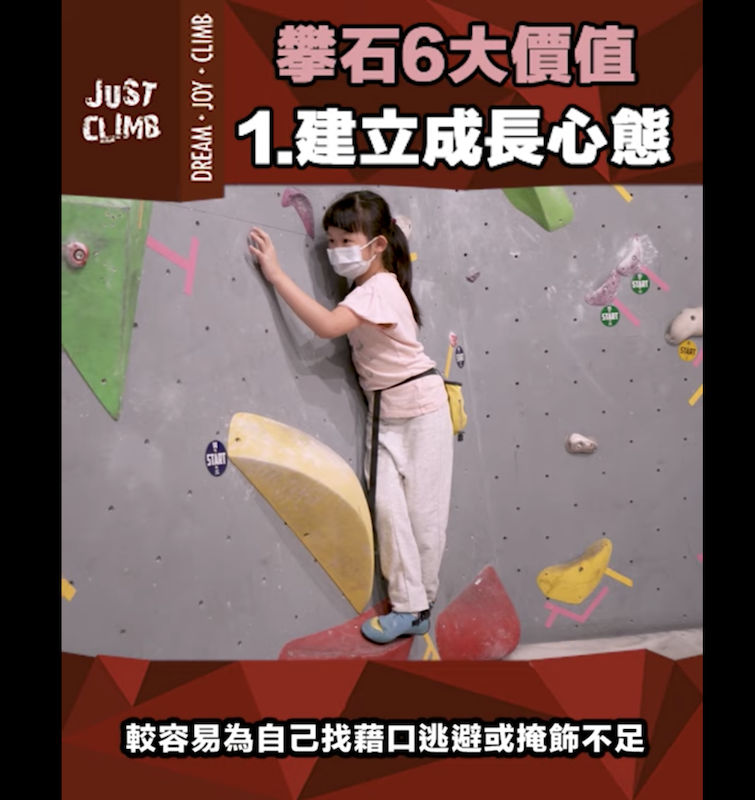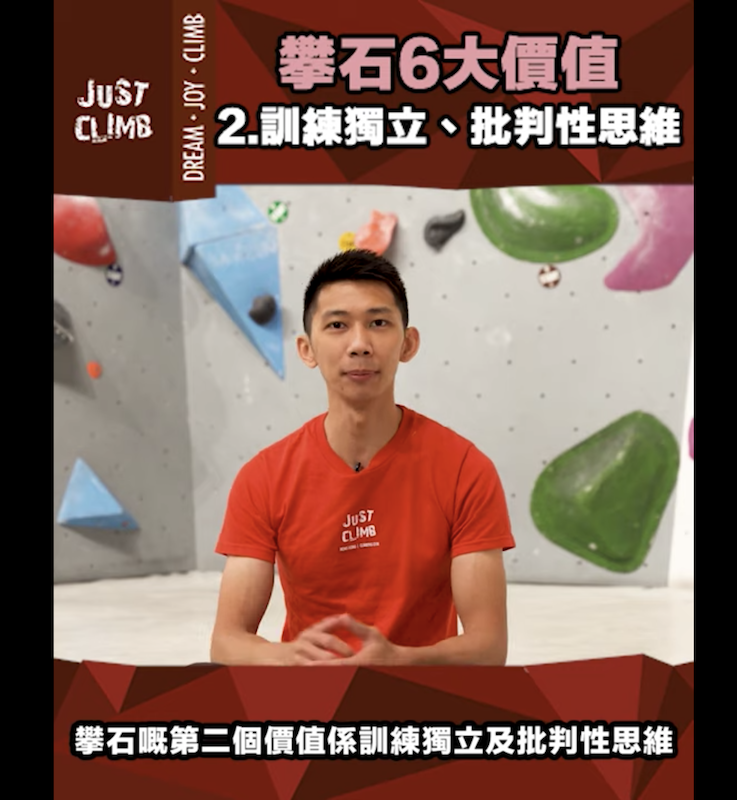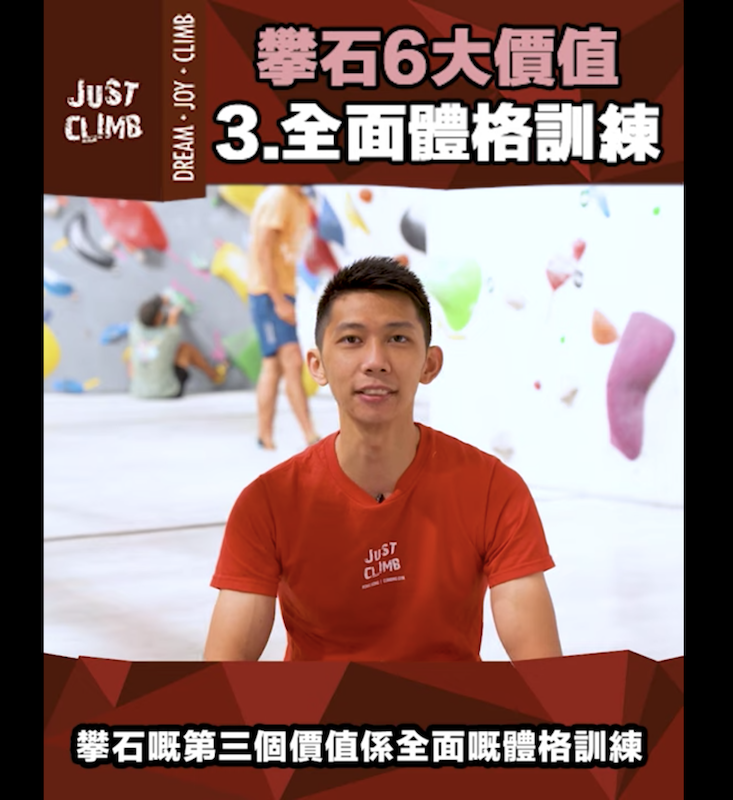Grasp the dream and climb out of the future
Climbing is a natural skill! JUST CLIMB is committed to cultivating the younger generation, making climbing a lifelong interest and a driving force for positive energy!
The benefits of climbing
Try Climb
Climbing is so terrifying? So difficult? Have you never tried it?
The Try Climb can let children experience the fun of rock climbing, and parents can directly understand from it
During formal class time, the coach can understand the children’s status and abilities in the class through the form and content of the class.
Instructor explaine basic climbing knowledge > Children experience rock climbing > After class summary with parents
$280/class 50 minutes
BOOK NOW
Courses Photos
Every child is a natural climber!
The children’s climbing course is divided into 8 levels, which are developed by professional athletes. During the climbing process, students can exercise their thinking, judgment, and concentration skills, and enhance their confidence and independent problem-solving abilities, enabling them to face various challenges bravely. At the same time, trust among peers is strengthened in class, and team spirit is cultivated.
Six Core Values of Climbing
NICAS
What is NICAS ?
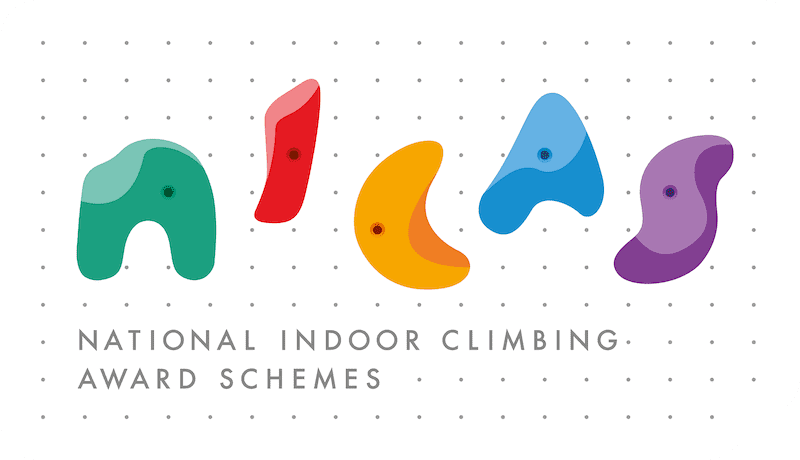
NICAS’s full name is The National Indoor Climbing Award Scheme。
It is a climbing certificate course originating from the UK, accredited throughout the UK. The program aims to promote the development of climbing sports and hopes to certify personal climbing achievements through formal courses.
The main purpose of the NICAS course design is to teach climbing skills and safety knowledge to children aged 7 and above in a progressive manner, and to cultivate students to become professional climbers through different levels of climbing training.
Program goal: “Cultivating climbers through high-quality coaching.”
NICAS' Curriculum Core
The two core award schemes for age 7+ are NICAS Climbing and NICAS Bouldering.
The NICAS Climbing scheme involves climbing with ropes and harnesses. It is usually done by two people, a climber, and one is holding the rope and keep climbers safe (the belayer). Protecting technique is a key part of NICAS.
NICAS “bouldering” – a climbing form that is typically done on small rocks or indoor walls. The height of bouldering climbs is lower than that of rope climbing. “Boulderers” are able to climb down or jump off the wall on their own (thus not requiring ropes and safety harnesses).
NICAS SCHEME STRUCTURE
NICAS Climbing and NICAS Bouldering each have five progressive levels of award for complete novices to expert climbers. The scheme is split into two parts and takes a minimum of 80 hours to complete Levels 1 to 4 and an additional year to complete Level 5. Part one contains Levels 1 to 3 and part two contains Levels 4 and 5.
It takes about 2 – 3 months of training to complete the Level 1 courses, and about 6 months of training for Level 2 and Level 3 respectively.
When you register with an Accredited Centre you receive a logbook for Levels 1-3. Later you will be offered a booklet for Levels 4 & 5.
JUST CLIMB student will be awarded with a certificate as you pass each level.
AIMS of NICAS BOULDERING
If you want your kids to obtain a unique professional qualification! Book our TryClimb class now and get ready to be the first NICAS Bouldering certificate owner in Hong Kong!
 English
English

